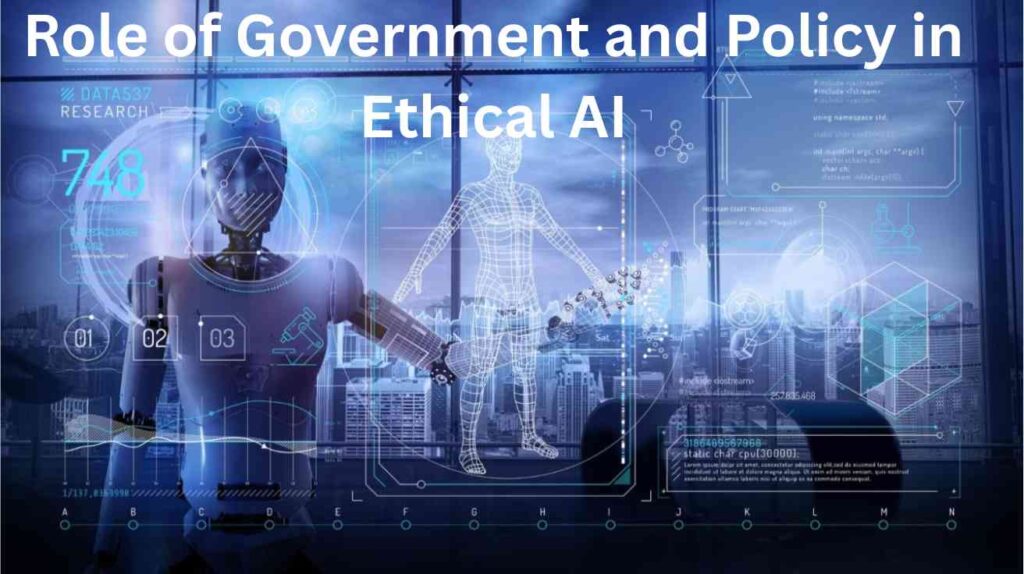Introduction
AI ethics is one of the most important discussions in the technology space today,, especially as India embraces rapid digital transformation.. With artificial intelligence being used in healthcare,, education,, finance,, and law enforcement,, ethical concerns are more relevant than ever.. From data privacy to algorithmic bias,, the challenges surrounding AI ethics must be addressed thoughtfully.. India,, with its diverse population and emerging tech sector,, faces unique ethical dilemmas related to AI adoption.. This article dives into the challenges and roles of AI ethics and why it’s critical for India’s future..
The Importance of AI Ethics in a Growing Tech World
As AI becomes increasingly embedded in decision-making processes,, ethical considerations help ensure fairness,, transparency,, and accountability.. In India,, where digital inclusion is still evolving,, poorly governed AI systems could lead to systemic discrimination.. Ethical frameworks guide how AI should be designed,, deployed,, and monitored.. Global organizations like UNESCO and OECD emphasize responsible AI development,, which India is also starting to adopt.. With the right ethical guidelines,, AI can be both powerful and equitable in Indian society..

Major Ethical Challenges of AI in India
India faces several challenges in enforcing AI ethics,, including lack of data protection laws,, digital literacy gaps,, and algorithmic transparency.. One key issue is data privacy,, particularly with facial recognition and surveillance being adopted by government bodies.. Another is bias in AI systems,, where skewed datasets may lead to unfair treatment of marginalized communities.. Additionally,, there is a lack of accountability when AI makes incorrect or harmful decisions.. Ethical concerns are further complicated by rapid AI adoption without adequate public awareness or regulation..

Role of Government and Policy in Ethical AI
Government policy plays a crucial role in shaping AI ethics.. India’s proposed Digital India Act and data protection bill aim to address some ethical concerns by setting standards for AI use.. Initiatives like NITI Aayog’s National Strategy for AI include recommendations for inclusive and responsible AI deployment.. Policies should include clear guidelines on AI accountability,, transparency,, and human oversight.. Education and capacity building in AI ethics should be part of India’s digital roadmap.. Without strong regulatory frameworks,, ethical breaches in AI could undermine public trust..
Involvement of Industry and Academia
Private companies and academic institutions in India have a shared responsibility in promoting ethical AI.. Tech giants like Infosys and TCS are beginning to integrate ethical considerations into their AI systems.. Indian universities are introducing courses and research on AI ethics to prepare future developers and leaders.. Collaboration between industry and academia can help create AI models that reflect India’s values and diversity.. By embedding ethical AI principles in development stages,, organizations can avoid negative societal impacts..
Public Awareness and Cultural Sensitivity
Raising public awareness about AI ethics is essential in a culturally diverse nation like India.. People should be informed about how AI affects their rights,, privacy,, and opportunities.. Ethical AI systems must be sensitive to cultural,, linguistic,, and socio-economic differences.. Awareness campaigns,, digital literacy programs,, and media outreach can empower citizens to engage in ethical AI discourse.. Building an ethical AI ecosystem requires participation from all sectors of society..
Table: Ethical Challenges vs.. Possible Solutions
| Ethical Challenge | Description | Suggested Solution |
| Data Privacy | Misuse of personal data without consent | Data Protection Law,, Consent Mechanisms |
| Algorithmic Bias | Biased results due to skewed training data | Diverse and Inclusive Datasets |
| Lack of Accountability | No clear responsibility for AI decisions | Legal Framework for AI Accountability |
| Surveillance & Autonomy | Excessive monitoring violating individual rights | Clear Limits on AI Surveillance |
| Public Unawareness | Limited understanding of AI’s impact | Digital Literacy Campaigns |
FAQs
- What is AI ethics? AI ethics is a set of moral principles and guidelines that govern the development and use of artificial intelligence technologies..
- Why is AI ethics important in India? AI ethics is crucial in India to ensure fairness,, prevent bias,, and protect the rights of a diverse population using AI-powered systems..
- What are the major AI ethics challenges in India? Challenges include data privacy,, algorithmic bias,, lack of regulation,, limited accountability,, and low public awareness..
- Can AI be regulated ethically in India? Yes,, through laws like the proposed Digital India Act and frameworks by NITI Aayog,, ethical AI governance is possible..
- How does bias affect AI decisions? Bias in AI can lead to unfair outcomes,, especially when datasets reflect historical or societal prejudices..
- What role does the government play in AI ethics? The government can enact policies,, support ethical AI research,, and build digital infrastructure that supports transparency..
- Are Indian companies focused on AI ethics? Yes,, several companies are now integrating AI ethics into their operations to ensure fairness and compliance..
- How can the public understand AI ethics better? Awareness programs,, accessible content,, and digital literacy campaigns can help the public engage with ethical concerns..
- Is AI ethics taught in Indian universities? Yes,, institutions like IITs and private universities are introducing courses and research on ethical AI development..
- Where can I learn more about AI and ethics in India? You can read more articles and updates on AI ethics at Meri Kahani..
Conclusion
AI ethics is not just a technical issue—it is a social necessity,, especially for a country like India that is rapidly digitizing.. From policy and education to public engagement,, ethical AI requires a holistic and inclusive approach.. Addressing AI challenges today will help build a more just,, transparent,, and equitable society tomorrow.. At Meri Kahani,, we believe in spotlighting the stories and issues that matter in India’s digital journey.. Stay connected with us as we continue to explore the roles and responsibilities of technology in shaping a better future..
Read More : In the ever-evolving world of blogging and SEO,, keyword research remains one of the most important tasks for improving your website’s ranking.. AI tools for keyword research and blog SEO are a game-changer for bloggers looking to boost their site’s performance.. These tools are designed to help you find low-competition,, high-traffic keywords that can make a significant difference in your search engine rankings.. Whether you’re a seasoned blogger or just getting started,, AI-powered tools can automate the process,, saving time while providing more accurate and insightful results.. In this article,, we’ll explore how AI tools for keyword research work,, their benefits,, how to use them effectively,, and compare them with other SEO techniques..
